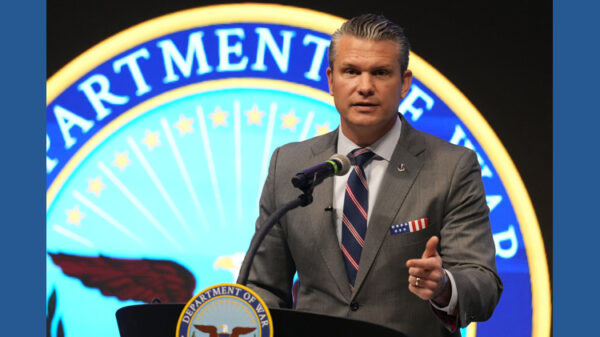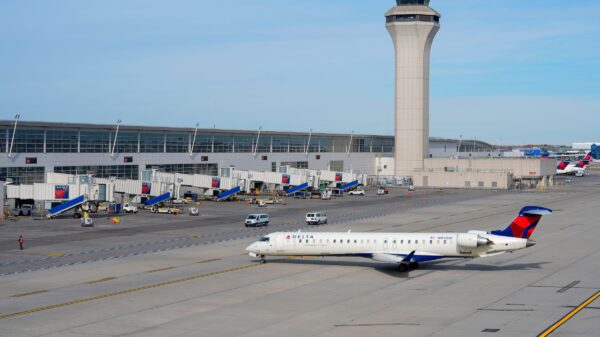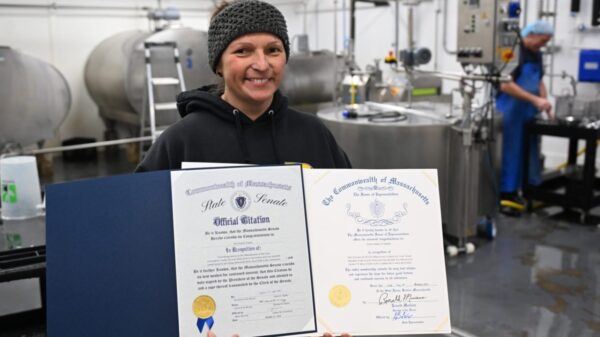The University of Texas at Arlington (UTA) is grappling with significant challenges stemming from changes in federal policy, as highlighted by President Jennifer Cowley during her recent State of the University address on September 11, 2023. Cowley addressed how these changes have led to economic strain, particularly affecting research funding, student financial aid, and visa regulations for international students.
In her address, Cowley acknowledged the historical resilience of UTA, stating, “Throughout our history, we have faced challenges, and this year, it’s challenges at the federal level that are stress testing our budgets and people in new ways.” She noted that federal grant cuts are creating obstacles for research, while international students are confronting travel bans and difficulties securing visa appointments. A UT System budget document projects a staggering 40% drop in international graduate student enrollment this fall, alongside an anticipated reduction of 300 undergraduate students due to recent rulings affecting undocumented students’ eligibility for in-state tuition. Consequently, UTA expects a revenue decline of between $13 million and $15.6 million this fiscal year.
In response to these financial pressures, UTA has implemented a hiring freeze and is exploring innovative strategies to secure resources. Despite these challenges, Cowley emphasized the university’s commitment to its academic mission and student support initiatives.
Financial Aid and Academic Growth
A significant highlight of the address was the introduction of the Blaze Forward program, designed to expand financial assistance for students from families earning $100,000 or less, an increase from the previous threshold of $85,000. This initiative has resulted in approximately 60% of undergraduate students qualifying for aid, according to UTA spokesperson Joe Carpenter. Additionally, nearly 47.5% of freshmen are expected to receive Pell Grants, a federal financial aid program aimed at supporting low-income students.
This fall, UTA welcomed a record-breaking freshman class of 5,100 students, marking the largest cohort in the institution’s history. Cowley remarked, “Now, even more Texas residents, regardless of financial background, can experience the transformative power of a UTA education.” The university also introduced two new bachelor’s degrees in hospitality management, along with minors in philanthropy and space systems. Furthermore, plans are underway to offer a doctorate in social work, pending final state approval, in response to a growing shortage of social workers.
Research Advancements and Infrastructure Improvements
Cowley highlighted UTA’s commitment to research, noting a tripling of undergraduate research opportunities in the past year. UTA has achieved an R1 research designation from the Carnegie Classifications of Institutions of Higher Education, recognizing its high level of research activity. The university plans to inaugurate a new drone facility, the Maverick Autonomous Vehicle Research Center, on September 16, 2023. This facility, a $2.3 million investment, will allow engineers to conduct research under varied weather conditions while meeting stringent FAA standards.
Additionally, Cowley discussed the establishment of a $2.1 million supercomputing hub introduced in July, designed to enhance UTA’s capacity for data-intensive research, particularly in fields driven by artificial intelligence. “This is a collaboration as it should be, with teams from the Office of Information Technology, Engineering, and Research and Innovation working together so our students and researchers can address bigger questions, handle bigger data, and do it faster than we’ve ever been able to do before,” she stated.
On the infrastructure front, Cowley outlined UTA’s expansion plans, which include the groundbreaking of UTA West in April and the allocation of $126 million from the UT System for campus improvements. Recently, UTA celebrated the opening of Maverick Hall, the largest residence hall on campus, with a capacity of 650 students. Renovations to the Life Sciences building are expected to be completed by fall 2027. Cowley concluded her address with an optimistic note: “This university is always moving forward. Sometimes it feels like the soundtrack of UTA is jackhammers and cement trucks, but that’s just the sound of a university on the rise.”
The challenges facing UTA underscore the ongoing impact of federal policies on higher education institutions, yet the university’s proactive measures and commitment to student success remain evident as it navigates these uncertain waters.





































































